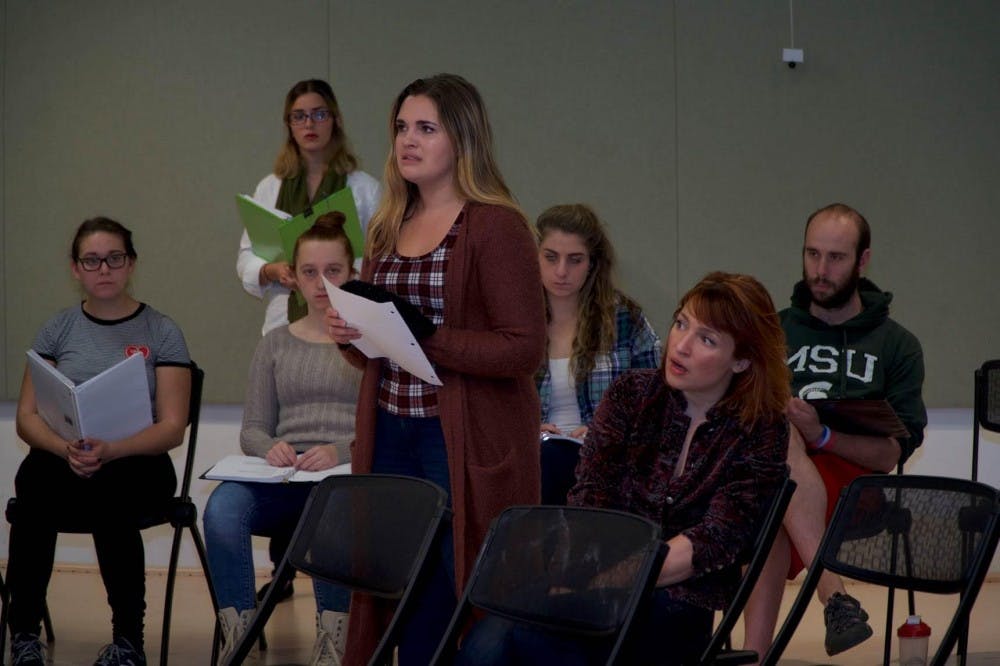Wharton Center staff have been taking strides to be a more inclusive environment, and sensory-friendly performances are their latest project.
The Wharton Center will host a sensory-friendly performance at 2 p.m. on Oct. 22, put together through a partnership with the MSU Department of Theatre. It will tell the life story of “Temple” Grandin, an autistic woman who fights for those on the autistic spectrum.
The show is specifically designed for people with autism spectrum disorder or other cognitive or physical disabilities.
The Wharton Center is the first of any major performing arts center in Michigan to train employees how to hold a sensory friendly show of this nature, director of marketing and communications at the Wharton Center Diane Willcox said.
“Our mission is to be as accessible as possible to all populations no matter what for our performances,” Willcox said. “We have tremendous services to those who are in wheelchairs, those who have difficulty hearing or difficulty seeing. We want to make sure that we are accessible to people who are on the spectrum as well.”
Wharton executives took extensive measures to prepare staff for the new experience by putting on special training sessions for all ushers and supervisors who would be working during this specific performance.
“We were aware we had this gap in our accessibility, and it was very important to us to fill that gap,” Willcox said.
Karís Casagrande is a clinical psychology graduate student at MSU. She works with the autism research lab and clinic on campus, and also serves on the board of the Mid-Michigan Autism Association(MMAA). MMAA was the group who put on the training sessions for staff at the Wharton Center, and Casagrande was one of the staff trainers.
“Really we’re focused on sharing information on what autism is, what is the diagnosis, by sharing videos and examples and kind of walking people through what a diagnosis of autism means,” Casagrande said. “But we’re also trying to talk to people about autism isn’t. There’s lots of myths and misconceptions about what it means to have autism, what it means to be the family of a child who has autism.”
Casagrande said that while the first initial trainings were "introductory," they covered the ways in which ushers and employees working in the Wharton Center can make the performance a welcoming environment. This included a discussion about "person-first" language.
“Person first language is something that not everybody knows about, so really talking about how you talk to a person with a disability," Casagrande said. "Basically you talk to them just like they were anybody else and they are an individual with a disability not an autistic person. Because they are a person before they are a disability.”
The training also conversations about how to handle unique audience situations where it is okay to make noise, be on cellular devices, have the lights on or partially on, and other instances where a person on the autistic spectrum might feel more comfortable than within the bounds of the normal Wharton Center performance.
“Specifically given the nature of a theater performance, we talked a lot about the sensory sensitivities that individuals with disabilities often have,” Casagrande said. “Sensitivity to noises and lights and textures. A theatre performance is generally a very busy environment, and really talking about what that experience would be like for a person with autism.”
The future of sensory-friendly performances, Willcox said, is large. Within the next four years, Willcox said they’d like to be providing two performances in their Act 1 Family Series, and a different performance in a different discipline as well.
Employees who got to experience the training firsthand said it was valuable.
“It’s sad because a lot of people do have disabilities,” prenursing sophomore and Wharton Center supervisor Katie Barhorst said. “And you need to be informed. And they do a good job of doing that.
Barhorst said she'll carry the knowledge she gained from her training to the rest of her career. She said she's proud.
“It’s not just the Wharton Center who cares about (inclusiveness),” Barhorst said. “I think it’s very important that the whole community cares about it and acknowledges it.”
Support student media!
Please consider donating to The State News and help fund the future of journalism.
Discussion
Share and discuss “Wharton Center held special training for sensory-friendly performance” on social media.







